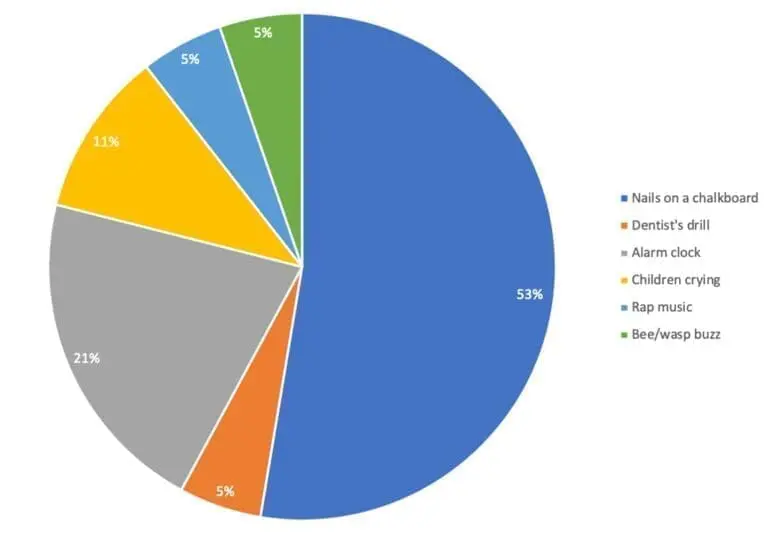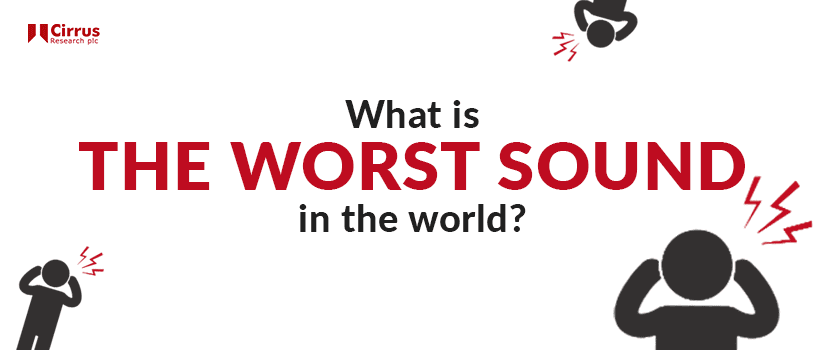Everyone has that one sound that makes their toes curl and their skin crawl. There are a whole host of sounds out there that can only be described as unbearable.
At Cirrus Research HQ, we couldn’t agree on which one sound really was the worst in the world, so we ran a short poll on our social media accounts to gauge people’s reactions to some of the worst sounds to pass through a human ear. We even gave respondents the option to add their own suggestions!

It’s clear to see what was the winner, with 53% of respondents choosing nails on a chalkboard as the worst sound in the world. In second place, we had the sound of an alarm clock, with 21% of the vote, and in third place was children crying, earning 11% of the overall vote.
But what precisely is it about these sounds that people dislike? Let’s take a look, shall we?
Why do people react badly to certain sounds?
According to LiveScience.com, researchers found that sounds of nails on a chalkboard and alarm clocks ringing have a very similar frequency to that of a crying child or a human scream, which indicates that our reaction to these sounds is linked to survival. For instance, people attuned to these frequencies are more likely to rescue a crying baby sooner.
It has also been said that the shape of our ear canals is also partly to blame. It’s speculated that over time our ear canals have evolved to amplify certain sounds to guarantee the ‘survivalist’ reaction needed as part of our primal human instinct.
But it’s not all as a result of thousands of years of evolution. Our personal biases could also be part of the problem. For example, a dislike of the sound of an alarm clock is probably less to do with some primal human instinct to survive and more to do with the fact that an alarm clock signals the time you have to get out of a warm and cosy bed and go to work or school.
Is there a name for the feeling when we hear/think about these noises?
You might not be aware, but there is a name for that feeling that we get when we hear or think about these noises…it’s called Grima and was developed by a group of Spanish psychologists.
Inge Schweiger Gallo and her colleagues from the Complutense University of Madrid carried out various studies to find out how ‘grima’ made people feel. When participants heard ‘grima’-eliciting sounds, their heart rates fell very slightly at first, then rose sharply, before returning to normal after around 6 seconds.
According to University of Salford acoustic engineer Trevor Cox, the frequency range of grima-inducing sounds is between 2000 and 5000 Hertz, which because of the way our ears work, triggers a strong physical response, like that associated with grima. Cox goes on to explain that it’s not just the frequency of the noise that affects how we respond to certain sounds, but also their ‘texture’.
Grima is still largely a mystery, as researchers continue to try and get to the bottom of the exact science behind what causes such extreme physical reactions to particular sounds.
Did your least favourite sound make the list?



